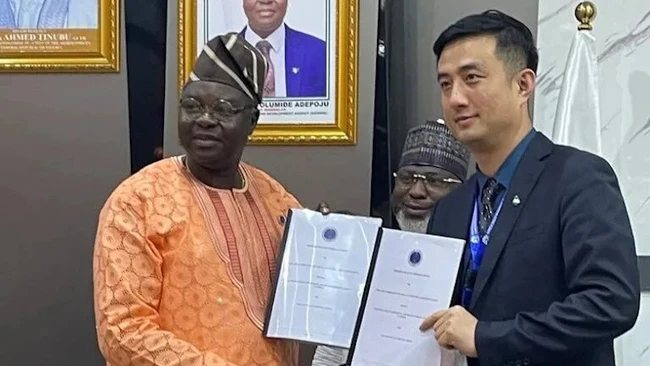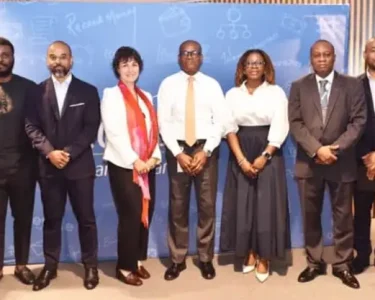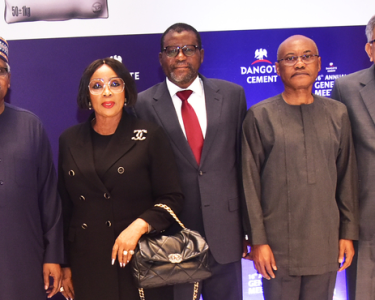Nigeria’s National Space Research and Development Agency (NASRDA) has formed an alliance with Chinese satellite company Galaxy Space to deploy direct-to-device (D2D) satellite communication technology across the country.
The Memorandum of Understanding (MoU), signed in Abuja, will enable Nigerians to access internet and voice services directly from satellites, eliminating the need for traditional infrastructure such as cell towers. The development comes as industry experts feel that growing satellite technologies, such as Low-Earth Orbit Satellites (LEOs), offer Africa a viable alternative to traditional infrastructure deployment, which is difficult or economically unfeasible.
Experts believe that LEO satellite services will play an important role in connecting previously unconnected areas, but closing Africa’s digital divide would necessitate a diversified strategy.
According to estimates from the Internet Society, more than 60% of the continent’s population does not have access to broadband Internet, with the majority spending more than 2% of their monthly income for reliable service.
With this in mind, the Internet Society emphasises that ongoing investments in submarine and terrestrial cable infrastructure, as well as LEOs, contribute to lowering the cost and enhancing the quality of connectivity.
In Nigeria, NASRDA director-general, Dr. Matthew Adepoju, commented on the Galaxy Space partnership, saying: “This initiative marks a new era in Nigeria’s communication landscape. It will allow everyday devices; phones, laptops, and IoT systems to connect seamlessly to satellites, eliminating network blind spots, especially in rural and remote areas.”
Adepoju projected that the full deployment of the D2D system will be completed before the end of 2025 and the system promises enhanced digital access for millions currently excluded from reliable connectivity.
In addition to improved access, the pact aims to promote local expertise. NASRDA and Galaxy Space want to work together on technology transfer activities, including training Nigerian engineers to develop and operate satellites.
“We can’t rely forever on imported technology,” Adepoju emphasised. “This collaboration is about building Nigerian capacity, creating local solutions, and reducing external dependence in the space tech ecosystem.”
Galaxy Space representative Sam Xiao commended NASRDA’s leadership and reaffirmed the company’s commitment to Africa’s digital transformation.
The business recognised for creating low-cost LEO satellites views Nigeria as a springboard for broader African deployment.
Xiao also proposed a joint project to build a CubeSat, a miniature satellite for which Nigerian engineers would be trained, involved in design and manufacturing, and in charge of operations.
D2D satellite technology is increasingly seen as a game-changer for countries with infrastructural challenges. Unlike traditional mobile networks, D2D systems allow users to connect directly to satellites, making internet access viable in areas that lack terrestrial network coverage.
With this agreement, Nigeria could leap ahead in the global race for D2D connectivity potentially competing with Elon Musk’s Starlink, which is offering similar services.
Starlink Direct to Cell service is now accessible in the US through T-Mobile and in New Zealand via One NZ. SpaceX is also piloting the service with partners in Australia, Canada, Chile, and Japan.





